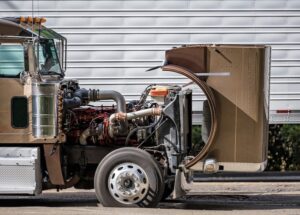Expert Diesel Engine Maintenance Tips
Diesel-powered motorhomes are known for their strength, torque, and long-lasting performance, making them a favorite among serious RV travelers. Whether you drive a Class A diesel pusher or a heavy-duty tow vehicle, understanding the basics of how diesel engines work can help you prevent costly breakdowns and keep your rig running smoothly for years to come.
At Ron’s Auto & RV in Vancouver, WA, we specialize in diesel engine repair and maintenance for RVs and trucks. Here’s a simple guide to help RV owners get familiar with their diesel engines.
How Diesel Engines Work (In Simple Terms)
Unlike gasoline engines, diesel engines don’t use spark plugs to ignite fuel. Instead, they rely on compression ignition. Air is compressed inside the cylinder until it becomes extremely hot, then fuel is injected, causing instant combustion.
This high compression creates more torque, which is why diesel engines are ideal for hauling big RVs up steep grades. They also burn fuel more efficiently, allowing for better fuel economy and longer lifespan compared to gas engines.
Common Diesel Engine Issues in RVs
Even the toughest diesel engine needs proper care. Here are some of the most frequent problems RV owners face:
1. Fuel Contamination
Water, dirt, and algae can get into the fuel system, especially if the RV sits for long periods. Contaminated diesel can lead to hard starts, rough idling, or clogged injectors.
2. Turbocharger Wear
Turbochargers boost air pressure for more power. Over time, excessive heat or poor lubrication can cause turbo failure, leading to loss of power or unusual whining noises.
3. Injector Failure
Fuel injectors deliver precise amounts of fuel into the combustion chamber. When they get clogged or worn out, you may notice misfires, smoke, or poor fuel economy.
4. Exhaust System & EGR Problems
Diesel engines use systems like the EGR (Exhaust Gas Recirculation) and DPF (Diesel Particulate Filter) to reduce emissions. If these components clog, you’ll often see warning lights, reduced power, or excessive smoke.
5. Cooling System Leaks
Diesel engines generate a lot of heat. If coolant levels drop or hoses crack, you risk overheating, one of the fastest ways to ruin an engine.
Warning Signs Your Diesel Engine Needs Attention

Don’t wait for a roadside breakdown. Watch for these early symptoms:
- Hard starting or slow cranking
- Loss of power, especially uphill
- Excessive smoke (black, white, or blue)
- Unusual knocking, rattling, or turbo whining
- Strong fuel or coolant smell
- Check the Engine or DEF light on
If you notice any of these warning signs, schedule a diesel engine inspection right away. Early intervention can save thousands in repairs.
Essential Diesel Engine Maintenance Tips
To keep your RV diesel engine in peak condition, follow these best practices:
1. Change Fuel Filters Regularly
Clean filters protect injectors from contamination. Most RV engines require fuel filter changes every 10,000–15,000 miles, or sooner if fuel quality is questionable.
2. Use Quality Diesel and Additives
Always fill up at reputable stations. If your RV sits for long periods, use anti-gel or anti-microbial fuel additives to prevent algae growth and fuel thickening.
3. Monitor Oil Levels and Change on Schedule
Diesel engines are hard-working, and clean oil is critical. Follow manufacturer recommendations, usually every 5,000–10,000 miles, depending on usage and load.
4. Inspect the Turbo and Air Intake
Make sure there are no leaks, cracks, or loose clamps. A restricted air intake can strain the turbo and reduce performance.
5. Keep the Cooling System in Check
Check coolant levels often and flush the system as recommended. Never ignore overheating or steam from the engine bay.
6. Drive Your RV Regularly
Sitting too long is bad for diesel engines. Short trips aren’t enough; take it on the highway occasionally to burn off moisture and carbon buildup. We also offer tire replacement and repair services.
Trust Ron’s Auto & RV for Diesel Engine Repair in Vancouver, WA
Whether you need diesel engine diagnostics, turbo repair, oil changes, or fuel system service, the expert technicians at Ron’s Auto & RV have you covered.
We service all major diesel RV engines, including Cummins, Caterpillar, Duramax, and Power Stroke. Contact us today for expert Auto and RV maintenance in Clark County, WA.
